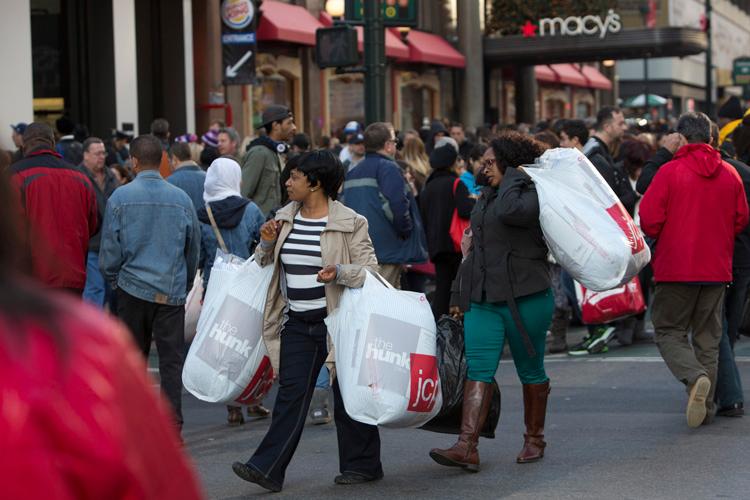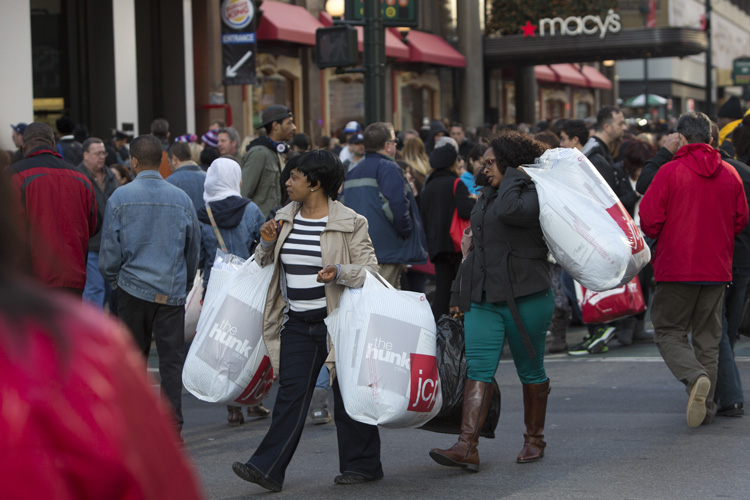Economic data released Tuesday was all positive. Consumer confidence, durable goods, as well as house prices all went up. Wall Street veteran Victor Sperandeo, however, warns that the improvement is only short-term.
“I am very bearish on the U.S. economy. I know housing is ticking up a little bit and people are putting a lot more weight in that. Of course the Fed is synthetically pushing down interest rates to make housing very accommodating,” says Sperandeo, general partner at EAM Partners LP and author of the classic “Trader Vic” books.
The Federal Housing Finance Agency (FHFA) released its house price index Nov. 27, which showed an increase of 1.1 percent in the third quarter compared to the second quarter of 2012. The index is calculated using home sales prices from mortgages issued by Fannie Mae and Freddie Mac and covers the whole nation. September showed a gain of 0.2 percent over August, and prices are up 4 percent since the third quarter of 2011.
Sperandeo, however, thinks that a return to a housing boom is a long way off. “Yes housing is now having its day and it will continue to have its day to a degree, but the bottom line is it can’t carry anything else.”
He cites the fact that only some segments of the market, like buying-to-rent are actually doing well. In addition, the big supply overhang of foreclosed but yet unsold homes (some estimates say two million units) has yet to be removed from banks’ balance sheets.
Durable Goods and Consumer Confidence Up
The Commerce Department released solid durable goods numbers Nov. 27 as well. New orders for manufactured durable goods ranging from refrigerators to oil rigs were up 1.5 percent in October, the fifth increase in the last six month. This figure excludes volatile transportation orders such as airplanes.
Some critics have pointed to a distinct weakness in the series though. Investment in capital goods needed for economic expansion decreased 8.1 percent compared to October 2011. The series excludes aircraft and defense spending, which distorts the view on real economic activity.
“You can’t bank on durable goods meaning anything; it’s a very volatile indicator. Boeing could make it go up and make it go down. It’s just not a good indicator, I wouldn’t look at durable goods as meaningful,” says Sperandeo.
He also thinks that the positive consumer confidence figures released Nov. 27 by the Conference Board are likely to be a fluke. The index increased 0.6 points to 73.7 in November, the highest it has been in four and a half years.
“I don’t know what people are looking at with respect to the consumer confidence level. That I don’t know, I am not up on why it was stronger rather than much weaker. Christmas is going to be a huge disappointment.”
Despite good Black Friday sales numbers, Sperandeo thinks that spending will not continue like this into Christmas. According to him, the people looking for real bargains boosted sales during Black Friday.
People affected by Hurricane Sandy, many without insurance coverage or facing high deductibles, are unlikely to spend big this Christmas season. “Sixteen million people were affected. They may buy one thing or two things, they are not going shopping, you got to put that into the mix.” An analysis by JP Morgan supports this thesis, with analysts saying that the Northeast “appeared weaker” this season.
Fiscal Cliff Biggest Threat to Economy
In an effort to reduce the budget deficit, Congress enacted legislation in 2011 that was dubbed “the fiscal cliff.” It means that beginning in 2013, there will be automatic cuts in spending and increases in taxes together totaling $667 billion, or 4.3 percent of GDP.
If no agreement is reached soon, the economy will go back into recession says Sperandeo. “You go over the cliff. 100 percent you are going into a recession,” he says. But even if Republicans and Democrats reach a compromise, it will likely hurt the economy.
“You lower spending and raise taxes. All you need to do to figure that scenario out is you look at Spain and you look at Greece, you look at Europe. That’s austerity. There is no reason to raise taxes except to punish the rich. It’s a socialist concept.”
An extension of the status quo for a couple of months won’t help either. With renewed talks just around the corner, people will refrain from making business decisions due to uncertainty over taxes and the state of the economy.
“You have continued uncertainty, which is really key; nobody knows exactly what to do. So many people will postpone making business decisions. They don’t know what their taxes are going to be. They don’t know many things that you need to know when you take the risk to go into business and hire people,” says Sperandeo.
In order to avoid the shock and return to growth, Sperandeo suggests a small reduction in spending of 1 percent per year and no increase in taxes.
The Epoch Times publishes in 35 countries and in 19 languages. Subscribe to our e-newsletter.







